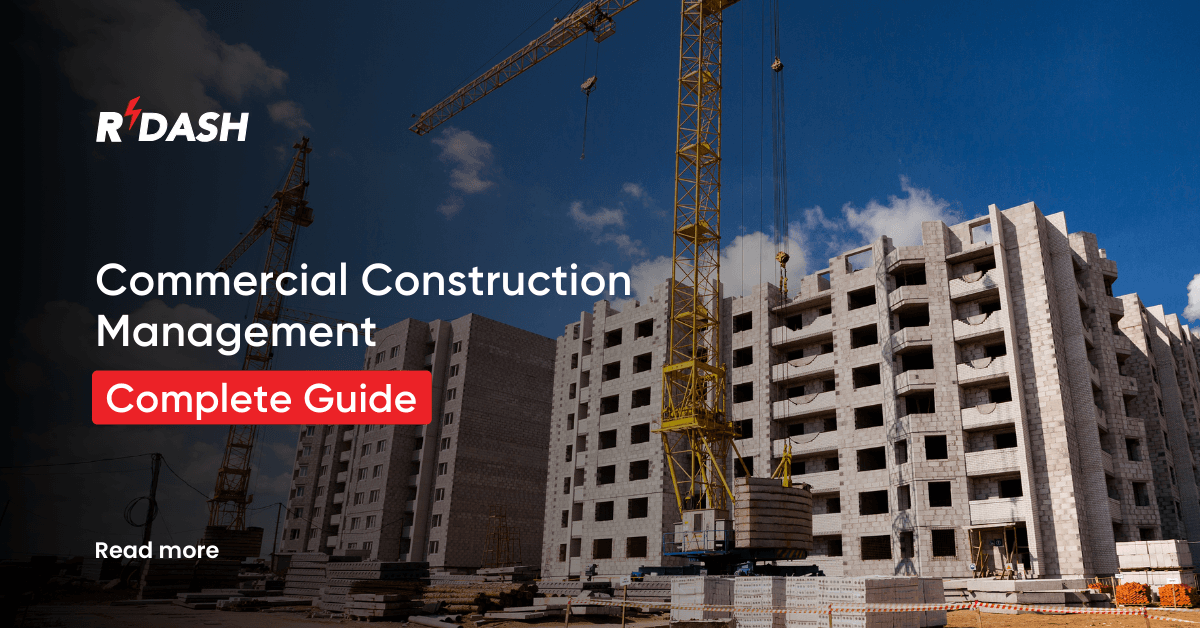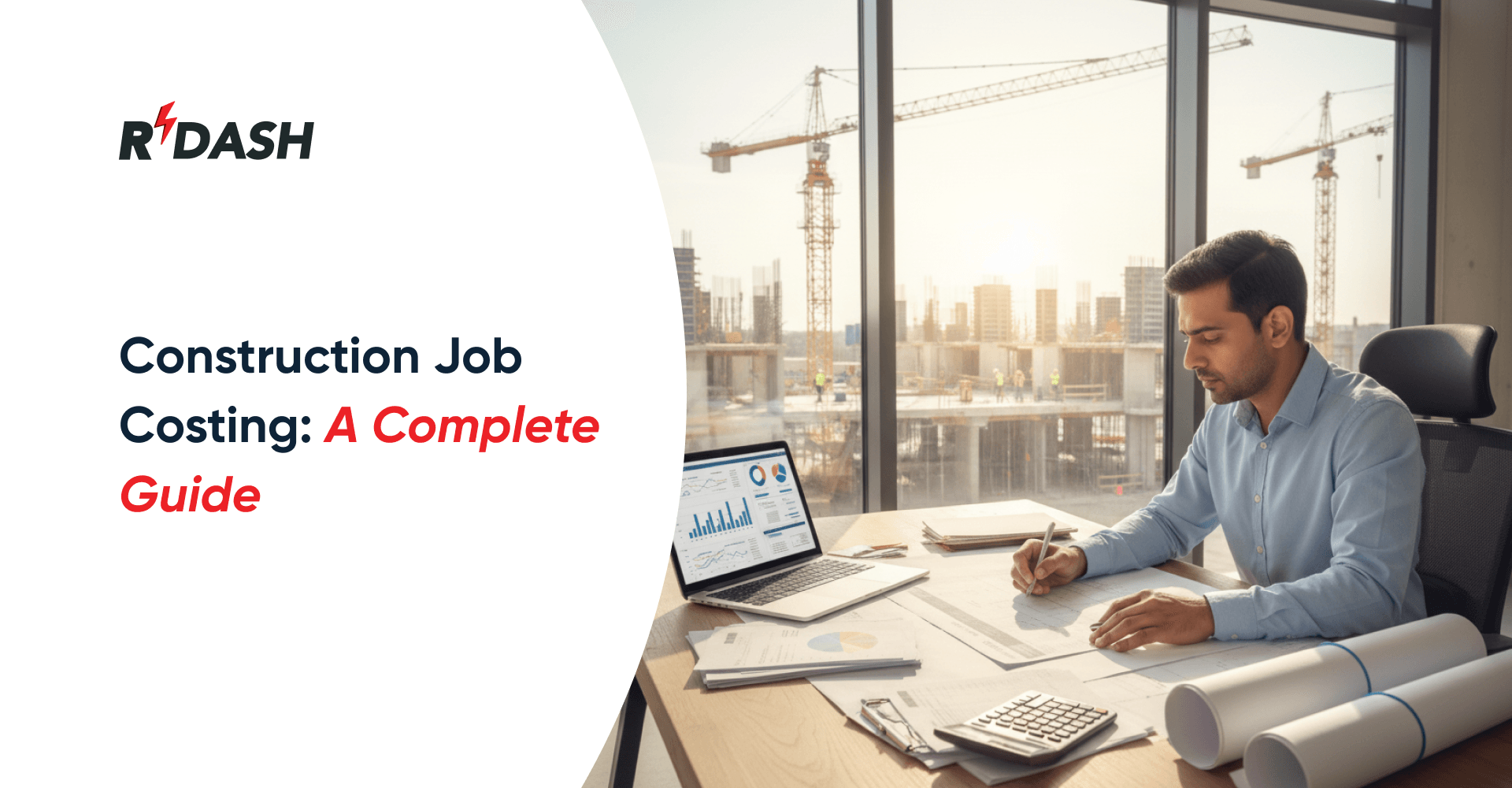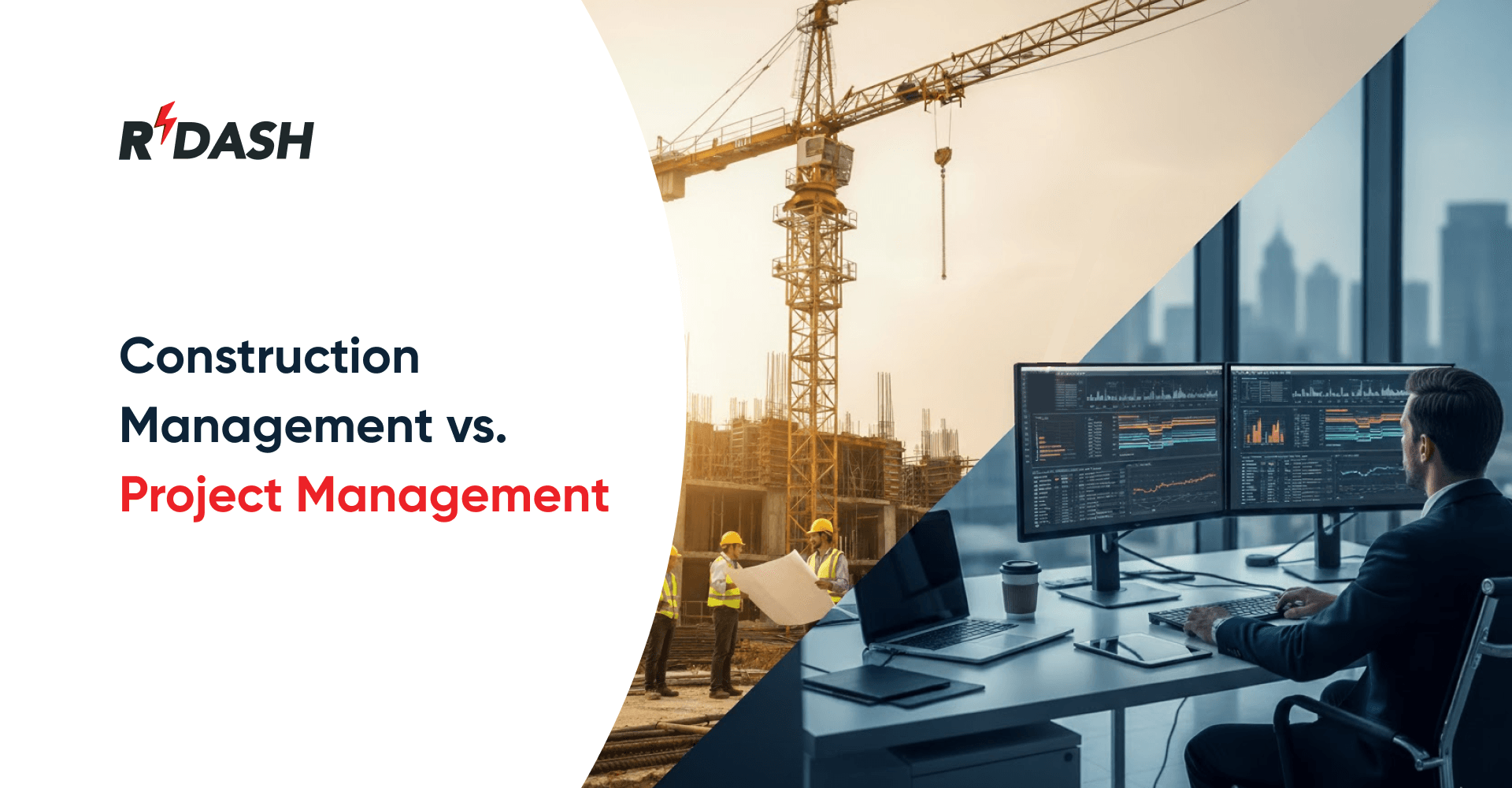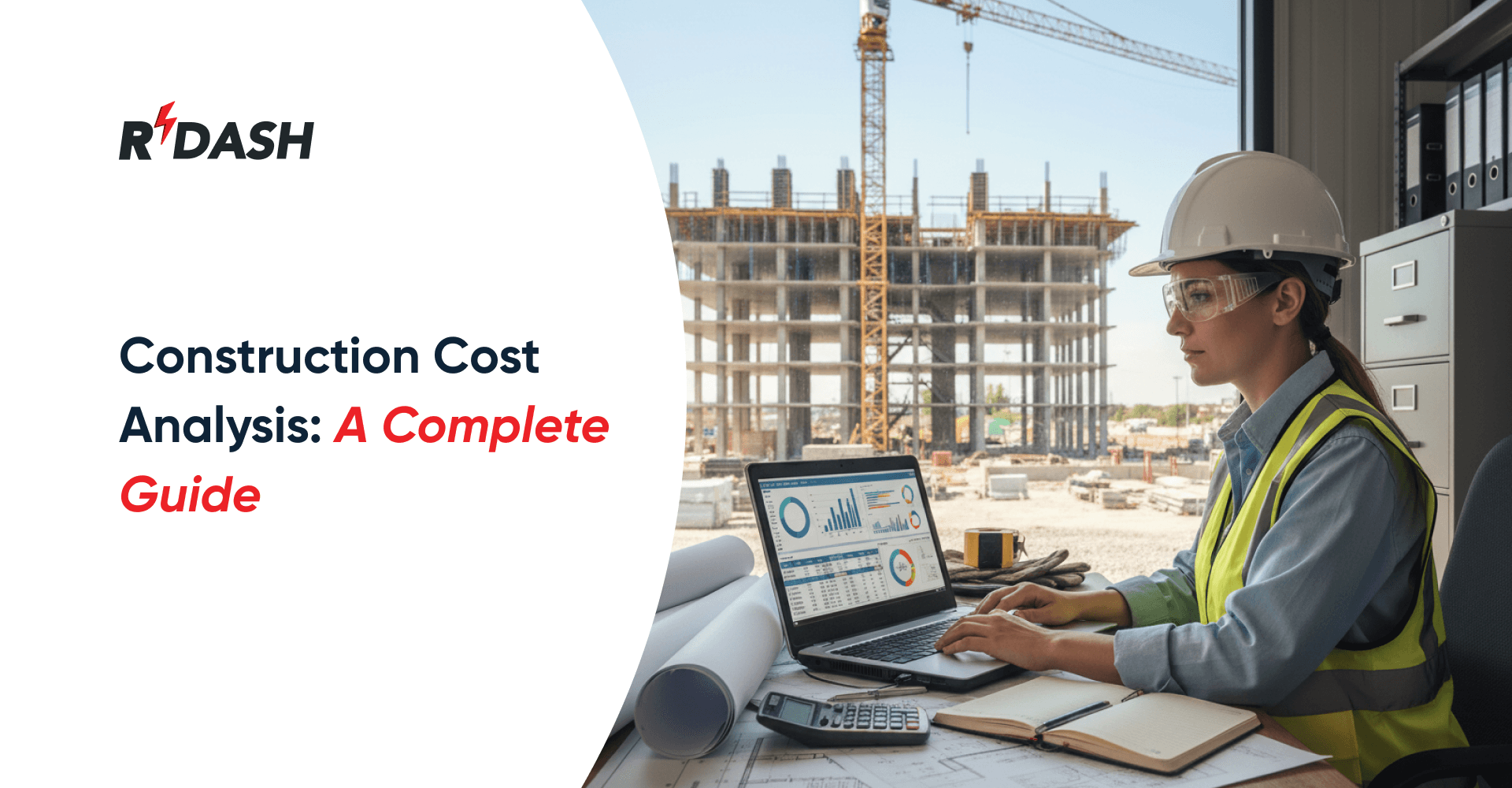What is commercial construction management?
Commercial construction management is a crucial area of construction that deals with the development of business-related facilities like office complexes, shopping centers, sports complexes, hospitals, hotels, and schools. It’s not just about building structures; it involves meticulous planning and detailed coordination of various processes to ensure that the project meets the specified requirements while staying on schedule and within budget. Key aspects include project planning, cost management, time management, quality management, contract administration, and safety management.
Residential vs. Commercial Construction Management
While both fields require a strong foundation in construction principles, the demands and specifics can vary greatly between residential and commercial construction management:
- Scope and Complexity: Commercial projects often have a larger scope and are more complex than residential projects. They might involve multiple floors, specialized architectural designs, and high-tech infrastructure, which require rigorous management and coordination.
- Stakeholder Engagement: Commercial construction typically involves a broader range of stakeholders, including businesses, government bodies, and public entities. Managing these relationships is critical to the success of a project.
- Regulations and Compliance: Commercial construction must comply with a stricter set of regulations, including building codes, safety standards, and environmental laws. These projects often require detailed documentation and regular compliance audits.
- Materials and Construction Techniques: The materials used in commercial buildings are selected for durability and longevity, able to withstand the wear and tear of commercial activities. Techniques are often more advanced, incorporating the latest technology and methodologies.
- Financial and Legal Considerations: Commercial projects often involve significant financial investment and more complex legal considerations. Construction managers must be adept at navigating these aspects, from securing funding to managing contracts and ensuring legal compliance.
Phases of a commercial construction management process
Commercial construction management is a highly structured endeavor, ensuring that large-scale projects like office buildings, retail centers, and industrial complexes are completed on time, within budget, and according to specifications. The process is generally divided into several distinct stages, each crucial for the successful delivery of the final project.

1. Project Conception and Feasibility:
The initial phase involves defining the project’s scope, objectives, and feasibility. This stage often includes market research, financial analysis, and preliminary discussions with stakeholders to assess the viability of the project. Decision-makers evaluate potential sites, investment requirements, and overall project goals.
2. Design Phase:
After confirming the project’s viability, the design stage is initiated.This involves architects, engineers, and designers who work to create detailed blueprints and plans that meet all regulatory requirements and client specifications. Key activities include schematic design, design development, and the creation of construction documents that will guide the building process.
3. Pre-Construction:
During this stage, the project team is assembled, including the construction manager, general contractor, and other key personnel. Key tasks include obtaining all necessary building permits, selecting subcontractors, finalizing project schedules, and setting up the construction site.
4. Procurement:
Procurement involves acquiring all necessary materials, equipment, and labor required to complete the project. This stage must be carefully managed to ensure that purchases align with the project schedule and budget.
5. Construction:
The construction phase is where the plans are executed. It involves site development, foundation work, structural framing, installation of electrical and plumbing systems, and the integration of all building systems. This phase requires meticulous coordination of workers, materials, and machinery to ensure that construction progresses as planned.
6. Post-Construction:
Once the main construction is complete, the post-construction phase begins. This includes thorough inspections, testing of building systems, and resolution of any issues. Final clean-up, landscaping, and preparation for occupancy also occur during this phase. The project concludes with a final walkthrough with the client to ensure satisfaction.
7. Close-Out and Evaluation:
The final phase involves the formal transfer of the finished building to the client, along with all necessary documentation and warranties. An evaluation is typically conducted to assess what was successful and what could be improved for future projects.
Benefits of effective commercial construction management:
- On-Time Delivery: Ensures that projects meet their scheduled completion dates.
- Cost Management: Helps keep the project within the agreed budget, minimizing cost overruns.
- Quality Assurance: Maintains high standards of construction quality and safety.
- Stakeholder Satisfaction: Ensures that the finished product meets or exceeds stakeholder expectations.
Frameworks for implementing construction management into a project
Integrating construction management into a project requires adopting structured frameworks that ensure efficiency and accountability. Key frameworks include:
- Integrated Project Delivery (IPD): This approach fosters collaboration among all project participants from the onset, aligning interests and goals to enhance outcomes and minimize waste.
- Lean Construction: Utilizing principles from lean manufacturing, this framework aims to maximize value and minimize waste through efficient project workflows and processes.
- Building Information Modeling (BIM): BIM is a digital representation framework that allows for 3D modeling and information management, facilitating better planning and decision-making throughout the construction project lifecycle.
Advantages of using a commercial construction manager
Hiring a commercial construction manager brings numerous benefits to a project, including:
- Expert Oversight: Provides professional knowledge and experience, ensuring that all aspects of the project adhere to industry standards, codes, and regulations.
- Risk Mitigation: Identifies potential risks early in the process, allowing for proactive strategies to mitigate them effectively.
- Resource Optimization: Ensures that both human resources and materials are used efficiently, reducing costs and avoiding delays.
- Improved Communication: Acts as the central point of communication for all stakeholders, streamlining interactions and ensuring everyone remains informed.
Commercial construction project manager responsibilities
The responsibilities of a commercial construction project manager are comprehensive, covering all stages of the project from inception to completion:

- Project Planning: Develop detailed project plans, including scope, budget, and timeline.
- Team Coordination: Coordinate the activities of all team members and subcontractors, ensuring that tasks are completed on schedule.
- Quality Control: Regularly inspect construction sites to ensure that the work conforms to the architectural plans, building codes, and other regulations.
- Budget Management: Monitor and control the project budget, making adjustments as necessary to handle unexpected changes or challenges.
- Client Relations: Maintain ongoing communication with the client about the project’s progress and any issues that arise, ensuring client satisfaction.
How RDash helps manage commercial construction projects
Real-Time Collaboration and Communication: RDash enhances the way teams communicate and collaborate by providing a centralized platform where all project stakeholders can interact in real time. This feature ensures that updates, changes, and decisions are immediately shared, reducing the risk of miscommunication and delays.
Mobile Accessibility: With mobile access to the RDash platform, project managers and team members can stay connected and informed regardless of their location. This flexibility allows for timely updates and decision-making, directly from the construction site or while on the move.
Enhanced Project Visibility and Control: RDash offers comprehensive dashboards and reporting tools that provide detailed insights into every aspect of the construction process. This visibility helps project managers to monitor progress, track critical milestones, and manage risks effectively, ensuring that the project remains on schedule and within budget.
Efficient Resource and Financial Management: RDash streamlines the management of resources and finances by integrating tools for budget tracking, expense management, and resource allocation. This integration helps to optimize the use of materials, labor, and capital, improving overall project efficiency and profitability.
These features of RDash collectively contribute to a more streamlined, efficient, and controlled commercial construction management process, empowering teams to deliver successful projects with confidence.





